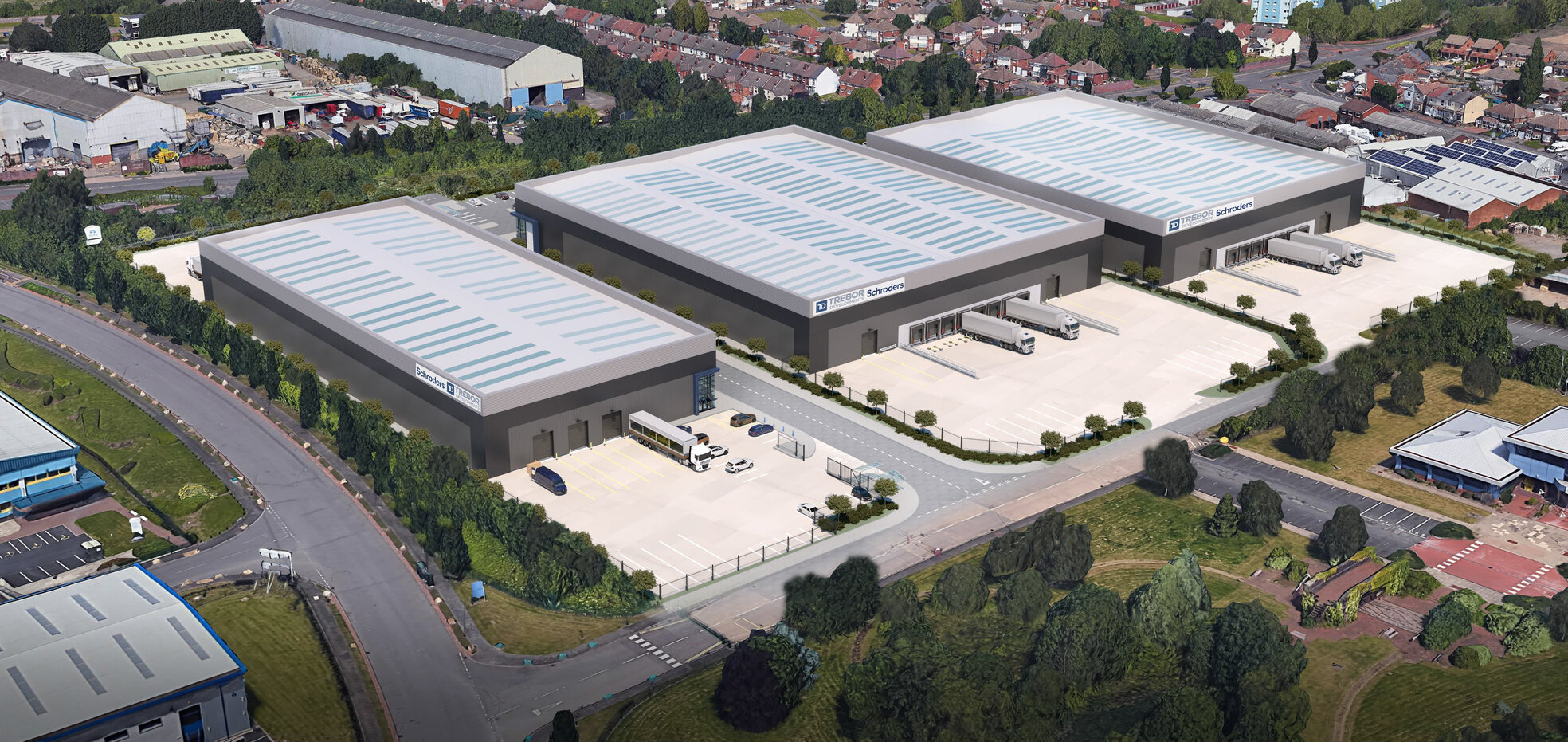
Trebor and Schroders secure planning consent at Revolution Park
Trebor Developments and Schroders Capital’s Schroder UK Real Estate Fund (SREF) have secured detailed planning consent for a four-unit industrial development at “Revolution Park, Wolverhampton”.
The development will be offered to occupiers on a build-to-suit basis of up to 200,000 sq ft, however the planning consent allows for a fast-track delivery of four mid-box industrial units from 25,000 to 84,000 sq ft to meet the needs of either distribution or manufacturing occupiers.
Greg Dalton, Development Manager for Trebor, commented: “Securing planning for the four-unit scheme is a key milestone in the delivery of this site, not only allowing us to deliver these particular units on a fast track basis but also establishing the principle of development on this brownfield site. We are very happy with the outcome. All units will be best in class and constructed to both BREEAM[1] “Excellent” and net zero standard.”
John Sambrooks of Gerald Eve added on behalf of the joint agents: “This new development is being delivered at a critical time in the market where demand is outstripping supply for new industrial/logistics space. We are delighted with the early response from occupiers, particularly those looking to acquire new buildings which meet the highest environmental standards ensuring the best working environment for their employees and customers.”
Philip Scott, SREF’s Investment Manager, Schroders Capital, said: “We are delighted to have secured planning consent for the redevelopment of Revolution Park. This will be one of the most sustainable and efficient buildings within Schroders Capital’s industrial portfolio and will allow us to deliver high quality, environmentally friendly, lower cost buildings for tenants.”
Revolution Park is being jointly marketed by Gerald Eve LLP and Bulleys on behalf of Trebor and Schroders Capital.
[1] BREEAM is an assessment undertaken by independent licensed assessors using scientifically-based sustainability metrics and indices which cover a range of environmental issues. Its categories evaluate energy and water use, health and wellbeing, pollution, transport, materials, waste, ecology and management processes. Buildings are rated and certified on a scale of ‘Pass’, ‘Good’, ‘Very Good’, ‘Excellent’ and ‘Outstanding’.